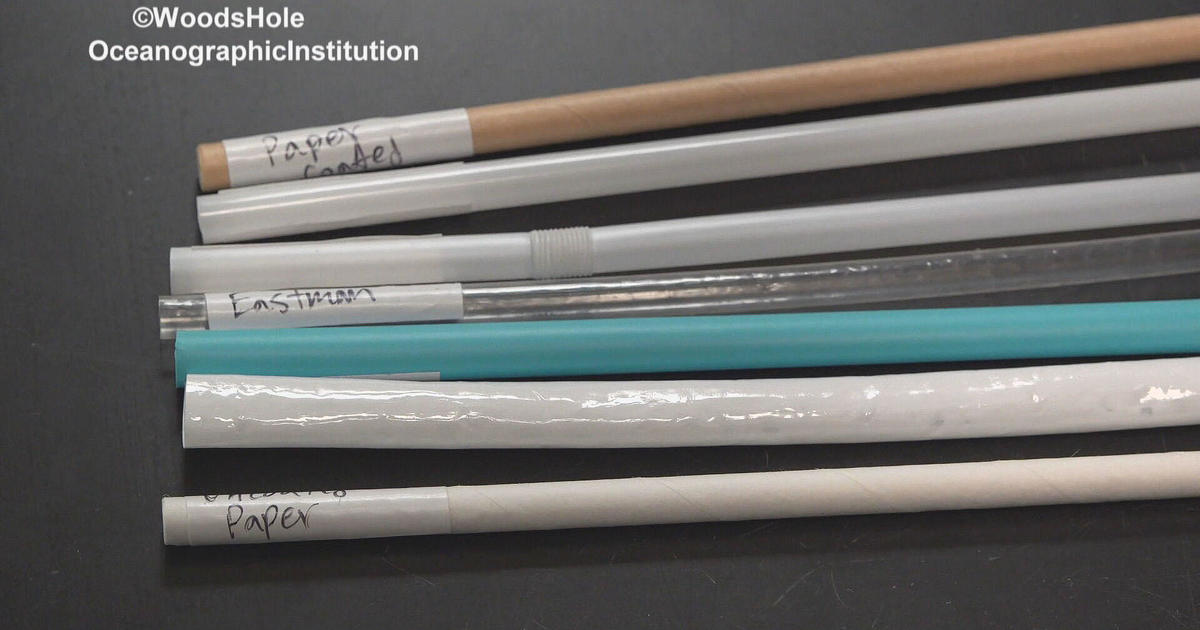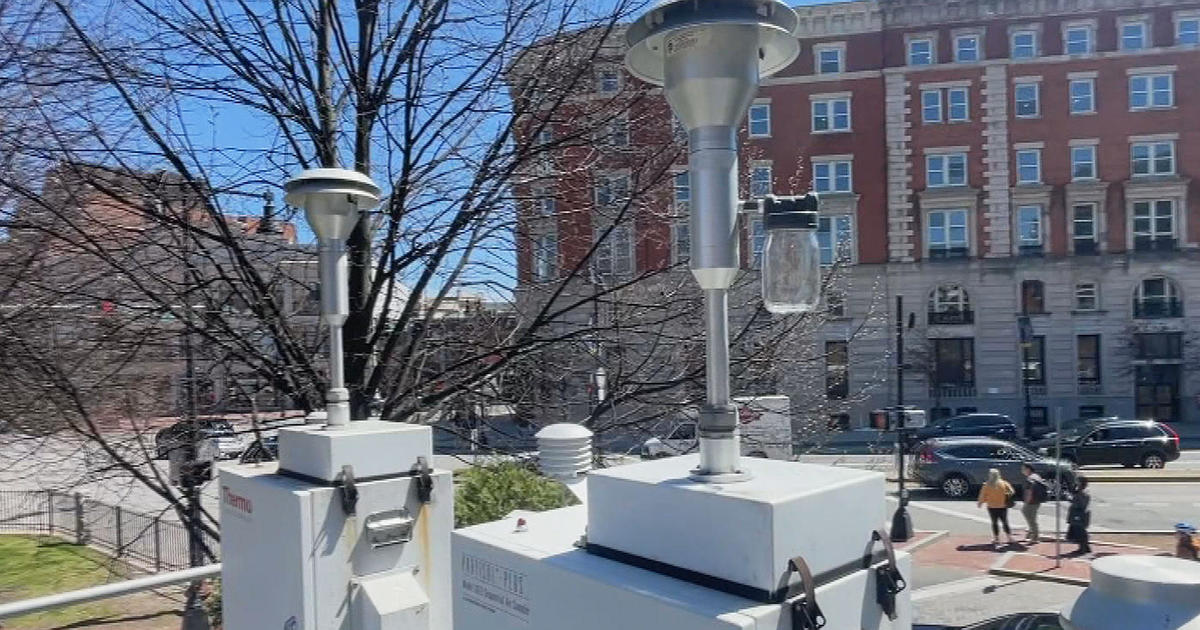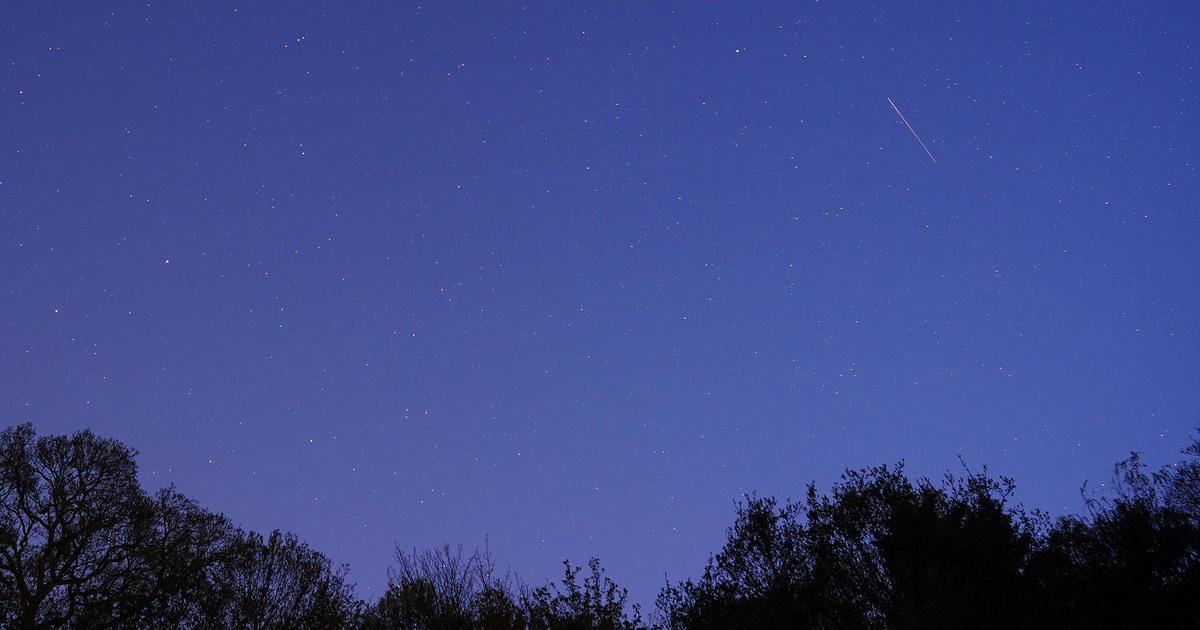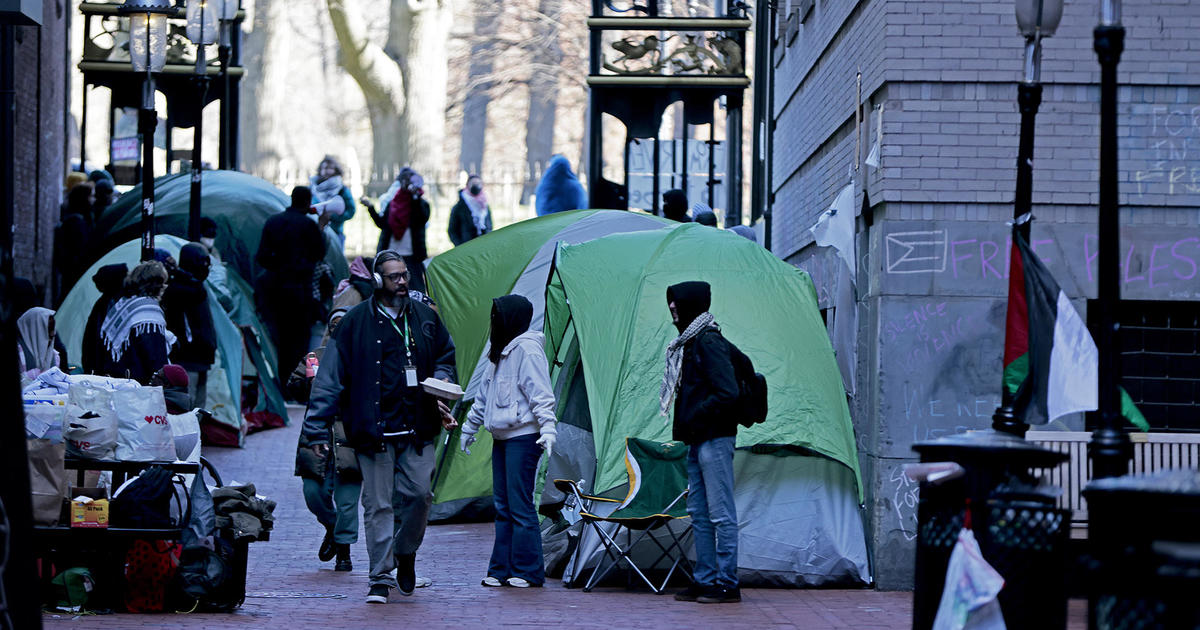Scientists Attempt To Identify 'Microplastics' In Boston Harbor With New Technology
BOSTON (CBS) - It's an experiment on the high seas to find out just how much plastic is in Boston Harbor. The problem? Some of it is too small to see with the naked eye.
Scientists are testing equipment that can find what's called microplastics, and that data can be critical. They're not looking for plastic bottles. They're looking for the extremely tiny pieces of plastic that are left when those bottles come apart.
"Every single piece of plastic that gets into the environment, into the water, will degrade and fragment into smaller and smaller particles which we call microplastics," said the EPA's Anna-Marie Cook.
Researchers from the Environmental Protection Agency, Draper Laboratory and the Massachusetts Division of Marine Fisheries drop sensors into the Boston Harbor water to sample the microplastic content, something that is important to know because the small pieces are plankton size, which means fish ingest them.
"If we think about fish, which is a source of protein, it's a very, very large part of what we're eating, and we really don't want to eat the plastic," said Dr. Sheila Hemami, from Draper.
When the sensors are raised, thin filters are removed. Scientists are experimenting with ultrasound technology to see if it will identify which parts of the sample are microplastics and which parts are other ocean debris.
"I like to quote our EPA colleagues who say, 'You can't manage what you can't measure,'" Hemami said.
The long-term goal is to develop technology that can be left in place for long periods of time and will transmit data continuously.
"How is the plastic changing over time? Is the amount going up and down? Does it vary with the season? Does it vary with the weather?" Hemami asked.
Learning about the impacts of microplastic could, one day, lead to a pollution solution.
"Practically speaking, once it gets there, we don't have a mechanism to clean it up. The best we can do is to stop it from getting there," Hemami said.
The scientists sampled three spots in Boston's outer and inner harbor and hope to do more in Gloucester Harbor. On Friday, some of the scientists will be at the New England Aquarium to answer questions about their research, first through Instagram then in person.



